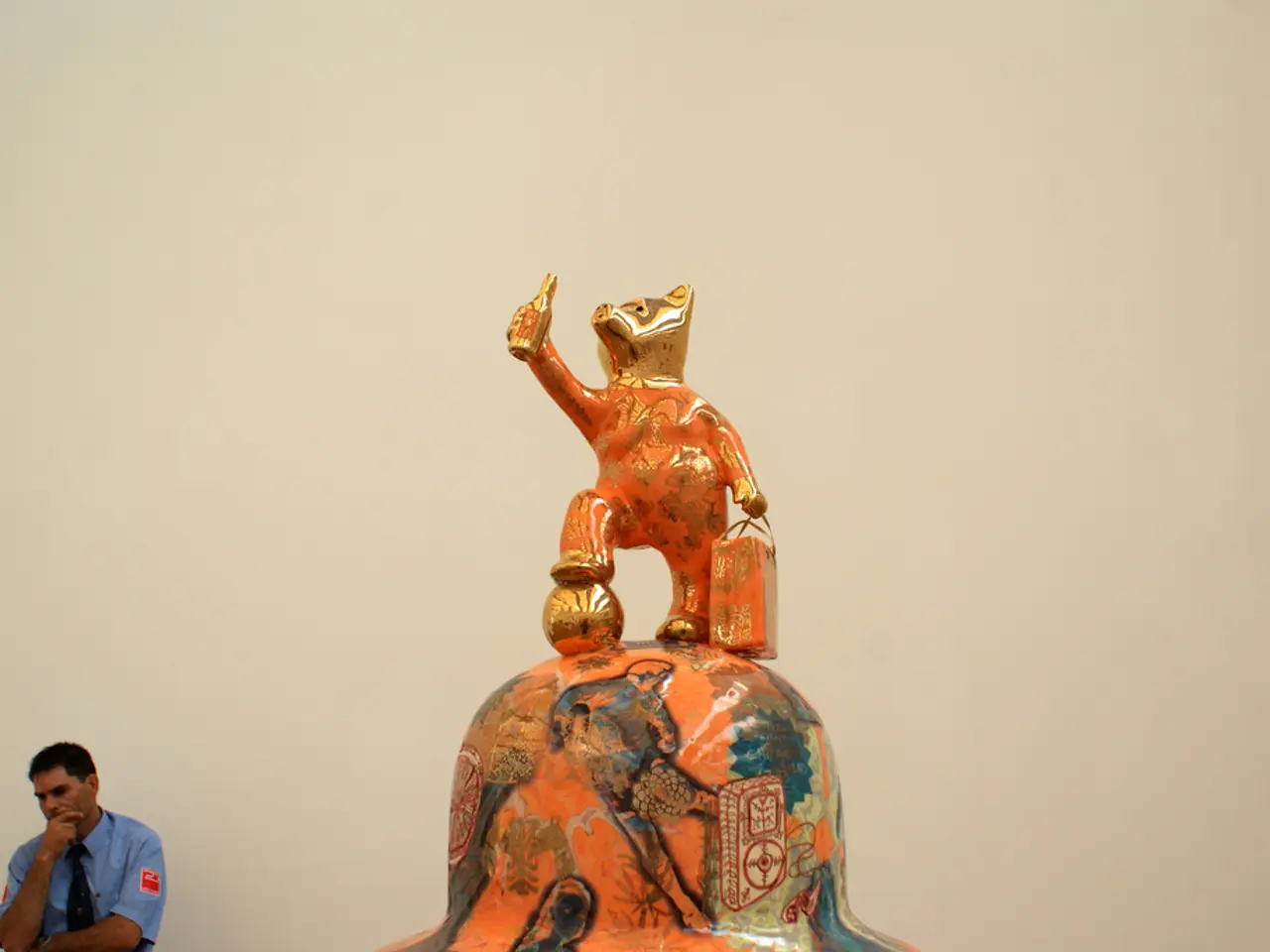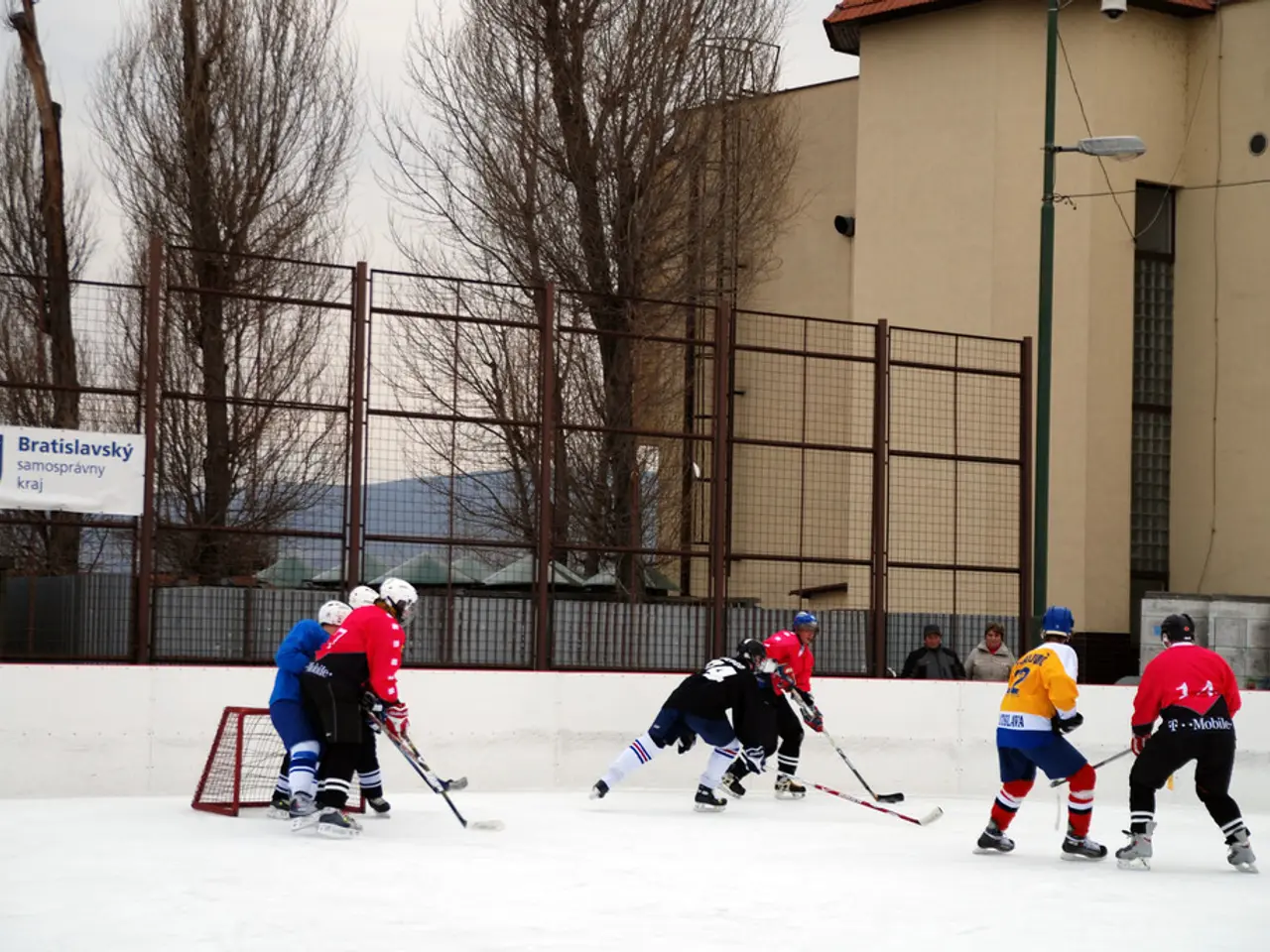Authoritarian Rule Undergirded by Cultural Alteration and Socialist Policies
In recent times, America has been witnessing a significant shift in societal dynamics, reminiscent of the ideological struggles of the past. This transformation can be traced back to the construction of a vast indoctrination system, where peer group pressure and career incentives have been employed to judge citizens as "responsible" or "irresponsible" based on their cooperation with the agitation-propaganda of the socialist camp.
This cultural revolution, as some argue, is preparing the ground for a more violent kind of uprising. The establishment of a socialist dictatorship could potentially lead to the destruction of America's nuclear deterrent and would likely be applauded by China due to the potential for Chinese world dominance. It's important to note that Chinese defense spending may already surpass U.S. spending in real terms [1].
The roots of this ideological battle can be traced back to the Marxist-Leninist revolution, which aimed to overthrow the dictatorship of the bourgeoisie in favor of the dictatorship of the proletariat. Lenin, a key figure in this movement, described this dictatorship as a violent war against the bourgeoisie, requiring the use of force. Stalin, another influential leader, emphasized that this transition cannot arise peacefully and necessitates the smashing of the bourgeois state machine, army, and bureaucratic apparatus [2].
Lenin also anticipated a long and difficult mass struggle to overcome bourgeois habits and traditions among small proprietors, office employees, officials, and intellectuals. He joked that the workers would not easily give up their bourgeois prejudices, and the struggle against them would be long and difficult [2].
In the Soviet State, politically unstable citizens were managed by the KGB through a process of "prophylactic" work, aimed at persuading them to recognize the political harm of their indiscretions. A similar process is happening in the United States, but without reference to state security organs or the police, and is often enforced through employment or career consequences, academic grades, or social and administrative consequences enforced by managers, teachers, and colleagues [2].
Those who oppose socialism are deemed "reactionary," and those who waver, and attempt to adopt independent thinking, are labeled "immature." Anti-socialist elements are routinely identified and demonized, as seen in the case of President Donald Trump or his followers [3].
Gramsci's theory, a significant expansion beyond traditional Leninist emphasis, highlights the importance of creating a new cultural conscience or worldview that undermines the legitimacy of existing capitalist norms. The working class and oppressed groups must engage in ideological work within civil society to build a new hegemony, thereby preparing the conditions for more profound social transformation [3].
This cultural-political strategy is essential to overcome the stability of capitalist societies that rely heavily on ideological control. It's a reminder that the soft tyranny of the American left thinks of itself as humane, but a society that believes a lie and muzzles truth-tellers will not stay humane for long [4].
[1] https://www.washingtonexaminer.com/opinion/chinese-and-russian-military-spending-could-actually-exceed-the-us
[2] Marx, K., Engels, F., Lenin, V. I., Stalin, J. V., Gramsci, A., & others. (n.d.). Key works of Marxism-Leninism. Retrieved from https://www.marxists.org/
[3] Hall, S. (2017). Gramsci's Political Thought. Polity Press.
[4] Laclau, E., & Mouffe, C. (1985). Hegemony and Socialist Strategy: Towards a Radical Democratic Politics. Verso Books.
- The construction of an indoctrination system in America, promoting socialist ideology, mirrors the propaganda tactics employed during the Marxist-Leninist revolution.
- In recent history, the potential establishment of a socialist dictatorship in America could be detrimental to military security, with the possible destruction of America's nuclear deterrent, and might potentially be applauded by Russia and China due to the potential for increased global influence.
- Lenin and Stalin, key figures in the Marxist-Leninist movement, emphasized that the transition to a socialist society requires force and cannot arise peacefully, potentially necessitating the smashing of the existing military, bureaucratic apparatus, and state machine.
- The ideological struggle to overthrow capitalist norms, as proposed by Gramsci, requires significant work within civil society to undermine existing norms and establish a new hegemony, preparing the conditions for more profound social transformation.
- In both the Soviet State and current American society, politically unstable individuals are managed through careful manipulation, often enforced through career, academic, or social consequences, rather than direct state security measures.
- Critics argue that the cultural revolution and accompanying ideological battles, reminiscent of the past, are preparing the ground for a more violent kind of uprising, with the potential to pose a threat to general news, policy-and-legislation, politics, and war-and-conflicts in America.








